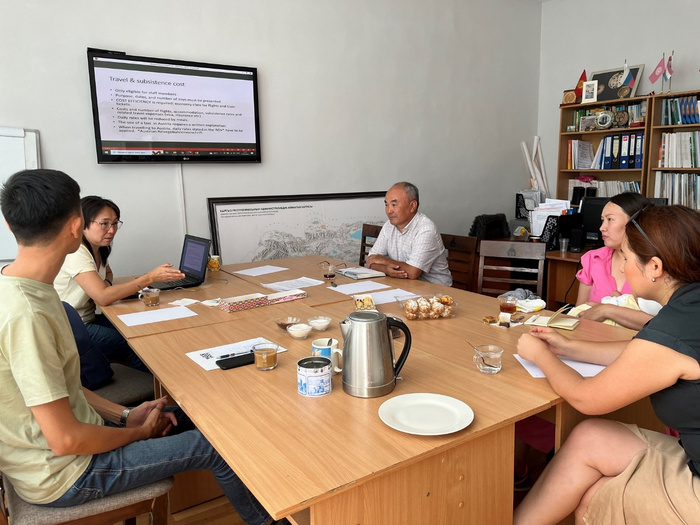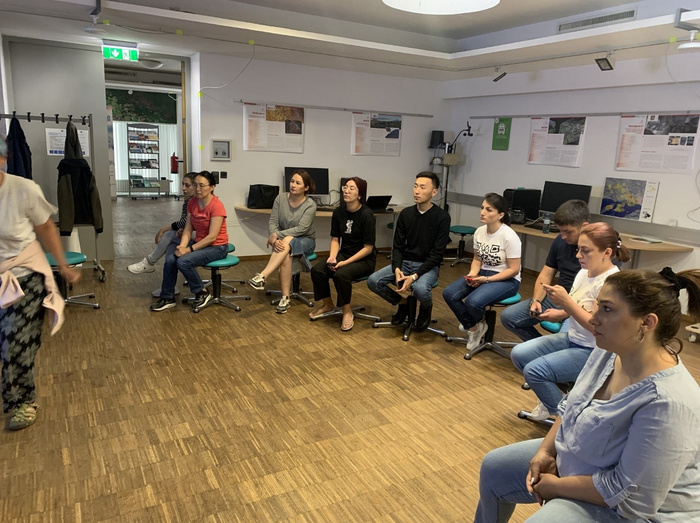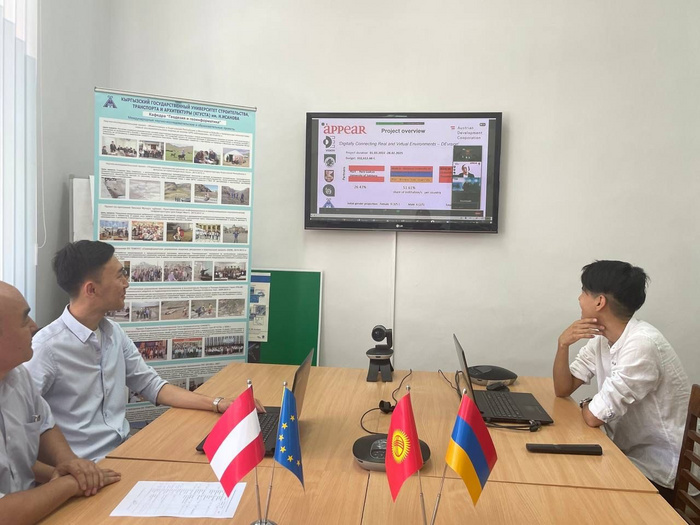DEvision
Project DEvision - Digitally connecting real and virtual environments 2022-2025
Project aim: Strengthening institutional capacity in higher education, as well as academic research and management in Armenia and Kyrgyzstan.
The project is funded by OeAD - the Austrian Agency for Education and Internationalization under the APPEAR program - the Austrian Partnership Program in Higher Education and Research for Development.
Project participants:
- University of Salzburg - PLUS, Austria (coordinator)
- National University of Architecture and Construction of Armenia - NUACA
- Yerevan State University - YSU, Armenia
- I.Razzakov Kyrgyz State Technical University - KSTU
The project partners have collaborated in multiple contexts for several years, identifying an urgent need and supply gap for education in and open access to current digital, online and participative technologies. In parallel, research capacities at the interface of real world problems and virtual representations need strengthening to serve as foundations for integrated regional development.
Project information:
DEvision aims at educating Digital Earth citizens across curricula by implementing a set of core learning modules serving as focal elements in multiple disciplines ranging from technical to environment, social and economic to governance subjects. The partner institutions in the Caucasus and Central Asia regions have highlighted that education only in traditional geospatial disciplines like Geoinformatics, Surveying or Geography falls far short of meeting the needs of the much wider sectors of economy and society responsible for Sustainable Development Goals.
Learning Modules on Digital Earth Basics, Geospatial Models and Representations, Geovisualisation and –communication, Remote Sensing and Image Analysis, and Spatial Analysis with integrated elements for Application Development will be jointly developed by the consortium, leveraging (partially) existing open education resources and creating and integrated syllabus covering one full semester’s equivalent of student engagement.
These modules are designed for bachelor or masters levels according to requirements identified by partners, and support the award of specialization certificates, potentially offered as continuing education as well. Within given educational frameworks, this approach based on open resources, online cloud environments and fully internationalized qualifications has been identified as an approach being equally feasible, high on desired impacts and trendsetting for digital learning.
It is expected that the joint initiative DEvision “The future is not something to predict. The future is something to build”, demonstrating and fully implementing the role model for digital transformation in education and ultimately in professional practice, will have a significant impact within and beyond all participating institutions.
Contact details:
Project coordinator:
Dr. Ainura Nazarkulova, ainura.nazarkulova@plus.ac.at
University of Salzburg, Austria
Web page of the project: https://devision-zgis.hub.arcgis.com
Local coordinator from KSTU:
Urmambetova Tatygul, tatygul_urmambetova@yahoo.com
Department of Geodesy and Geoinformatics








